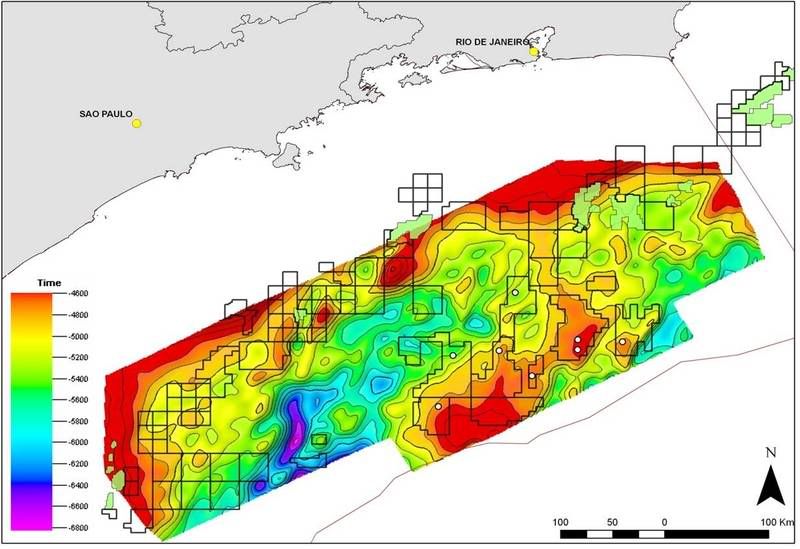Tuesday, May. 27, 2008
What China Wants from the Russians
By Bill Powell/Shanghai
Russia's newly inaugurated President, Dmitri Medvedev, just completed his first state visit over the weekend. His choice of locale was not a surprise: Beijing. During the visit, there were predictable headlines in the press about Medvedev and President Hu Jintao denouncing U.S. plans for missile shields in both Europe and east Asia. The U.S. says they are to help its allies defend against possible attacks from Iran and North Korea. Moscow and Beijing don't really believe that, but the fact is, that train has left the station. Both countries, on their own, will have to decide how to respond should missile defenses go up
But the day-after wire service stories miss the larger point about the Hu-Medvedev meeting. What was most important is what didn't happen. If the outside world had access to China's intelligence service — the Guojia Anquan Bu or National Security Ministry — this is how an after-the-fact debriefing on the Medvedev visit might have gone from one of Beijing's official Russia specialists (an expert who, for the sake of literary license, was educated in the U.S.) addressing the Central Committee and the State Security Council:
"Yet another bad date. The young Russian President — he's only 42, and actually looks much younger in person — sounds a lot like the old one, which shouldn't be surprising, since Mr. Medvedev is a place holder for Mr. Putin, now the Prime Minister.
"First things first: China's interests when it comes to Russia don't have anything to do with American plans for missile defense. We can certainly afford to build a few more nuclear weapons if we genuinely feel threatened by missile defense, but our attitude should be wait and see: our U.S. assets say the likely new President, Mr. Obama, will shelve plans for missile defense because he wants everyone to like America. We'll wait and see.
"No, we need to build trust with the Russians on bilateral security matters — relations between them and us, one on one. And while we've settled some border disputes over the past couple of years, and we continue to buy their weaponry, there is one thing that would demonstrate to everyone looking that our relations had truly entered a new era, where trust finally supplants suspicion. They need to sell us oil and gas — lots and lots of it — at a reasonable price.
"As the Americans like to say, 'This ain't rocket science.' The Russians have oil and gas — tons of it — and we need it. We need it now. We'll need it tomorrow. And we'll still need it decades from now. But we still can't get a deal done with Moscow. Not on oil and gas. We've talked and talked and talked — and issued to the international press a string of optimistic sounding half-truths for the last four years — but we still don't have much to show for it.
"Oh sure, they agreed to sell us $1 billion worth of uranium. Unlike some people who prattle on endlessly about global warming but don't do anything about it, we're expanding our nuclear generation capacity massively: That's the New 'China syndrome,' folks.
"But more than anything we need hydrocarbons — oil for the 25,000 new cars that we add to our streets every day in China, because they're not Priuses. And we need natural gas for our power plants. For years we've talked about various proposals, but we still can't agree on price. The Russians want us to pay for natural gas what the rich Europeans pay. Sorry, we can't do it, not when we're supposed to subsidize the construction of the pipeline in the first place, plus pay bribes to everyone in Moscow. An international energy consultant, a Chinese-American fellow by the name of Edward Chow, once said the Russian-Chinese energy relationship isn't a marriage, 'it's a series of bad dates.'
"He isn't far from the truth. That's why, by the way, we sent the Russians a signal just a month before this weekend's summit: we signed a $60 billion long-term liquefied natural gas deal with Qatar. We wanted to show the Russians we had options, that they couldn't dictate prices to us. And so we did. The fact is, we trust sources of supply in the Middle East more than we do the Russians. After all, we haven't fought a war against anyone in that part of the world like we did against the Soviet Union in 1969 (and that one almost got out of hand). Things are much better now, of course. But the Russians are right there, across our border, and instead of seeing our vast population and rapid economic growth as a golden economic opportunity, their military and security ministries still look at us and feel nervous. It is an anxiety Nikita Khrushchev wrote about ages ago and it hasn't changed.. The Russians see the vast relative emptiness of their own land mass — and the riches that lie beneath it — and think we might to be tempted to take some of it someday.
"They're nuts to think that, but what are you going to do? For now, we'll buy our energy elsewhere. After all, the Americans still patrol the Persian Gulf, guaranteeing that all the oil and gas we buy from there (including Iran's!) will get to China without incident.
"For now anyway, that arrangement's OK. Because the fact is, despite all the bluster about missile defense this past weekend, if it comes down to a question of who we trust less — the Americans or the Russians — well, that's no contest. Do svedanya, Mr. Medvedev."
Click to Print Find this article at:
http://www.time.com/time/world/article/ ... 32,00.html




.jpg)




